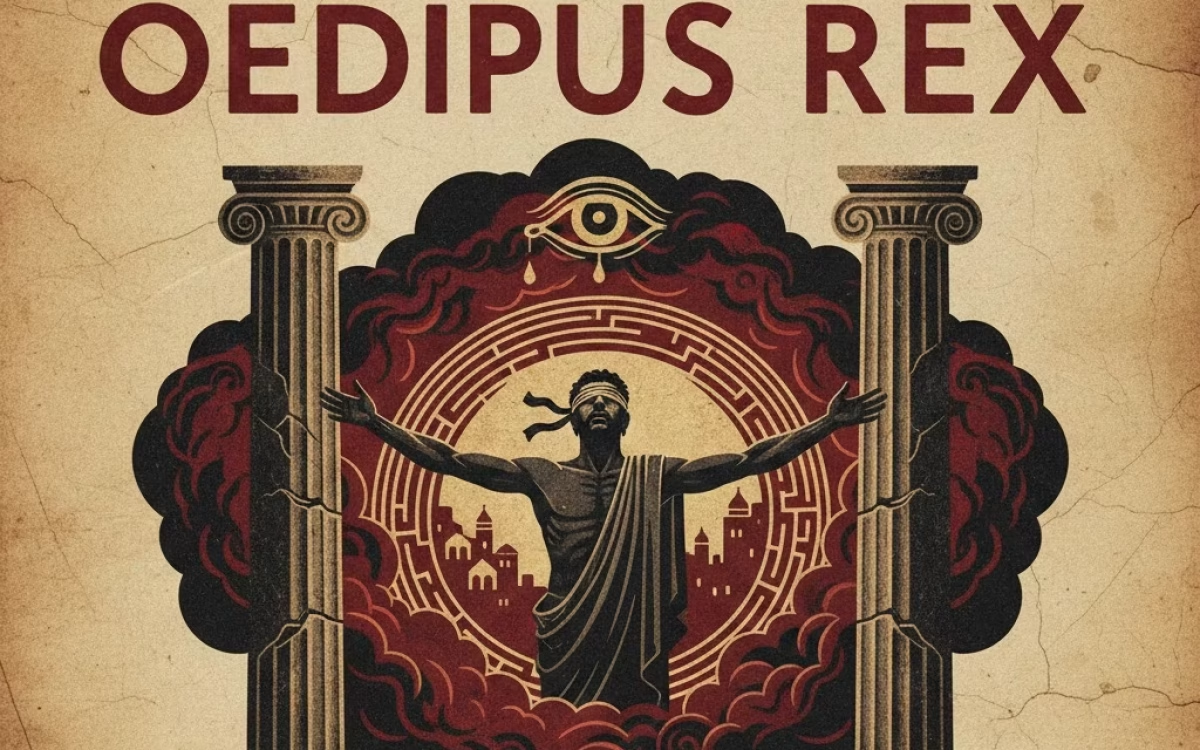Introduction
Sophocles’ Oedipus Rex stands as one of the most influential and enduring works of classical Greek drama. Written around 429 BCE, this play has captivated audiences for centuries with its gripping narrative, complex characters, and profound exploration of fate, knowledge, and self-discovery. In this comprehensive guide, we delve into the play’s plot, themes, literary devices, and lasting impact on literature and psychology.
Oedipus Rex: The Tragic Tale of Fate
Oedipus Rex tells the tragic story of Oedipus, the king of Thebes, who unknowingly fulfills a prophecy that he would kill his father and marry his mother. The play opens with Thebes suffering from a devastating plague. Oedipus, determined to save his city, consults the oracle at Delphi, which reveals that the plague will end only when the murderer of the former king, Laius, is found and punished.
Oedipus launches an investigation, unaware that he himself is the murderer he seeks. Through a series of revelations, Oedipus discovers that the man he killed years before at a crossroads was King Laius—his real father. He also realises that his wife, Jocasta, is his mother. Overwhelmed by guilt and shame, Jocasta hangs herself, while Oedipus blinds himself and goes into exile. READ MORE
Sophocles’ Oedipus Rex Themes: Fate, Knowledge, and Justice
Fate vs. Free Will
One of the central themes of Oedipus Rex is the tension between fate and free will. Oedipus tries to escape his destiny by leaving Corinth, where he was raised, but his actions inadvertently lead him to fulfils the very prophecy he sought to avoid. This raises profound questions about whether individuals can truly control their lives or if they are bound by fate.
Knowledge and Ignorance
The motif of sight and blindness is a powerful metaphor for knowledge and ignorance. Tiresias, the blind prophet, possesses true insight, while Oedipus, who can see, is blind to the truth about himself. When Oedipus finally learns the truth, he blinds himself, symbolising the pain of self-knowledge and the burden of guilt.
Guilt and Shame
Oedipus’ journey is marked by guilt and shame. He prides himself on being a just ruler, but when he discovers the truth about his actions, he is devastated. His self-inflicted blindness and exile are acts of atonement, reflecting the deep psychological impact of his crimes.
Justice and Morality
The play explores the nature of justice and morality. Oedipus is determined to punish the murderer of Laius, not realizing that he is condemning himself. This irony underscores the complexity of justice and the limits of human understanding.
Oedipus Rex Characters: Key Figures and Their Roles
Oedipus: The tragic hero, king of Thebes, whose quest for truth leads to his downfall.
Jocasta: Oedipus’ wife and mother, who kills herself upon learning the truth.
Tiresias: The blind prophet who reveals the truth to Oedipus.
Creon: Jocasta’s brother and Oedipus’ brother-in-law, who assumes leadership after Oedipus’ fall.
The Chorus: Represents the citizens of Thebes, commenting on the action and reflecting the moral and emotional tone of the play.
Oedipus Rex Literary Devices and Techniques
Dramatic Irony
Oedipus Rex is renowned for its use of dramatic irony. The audience knows Oedipus’ true identity long before he does, making his confident assertions and curses deeply ironic. This device intensifies the tragedy, as viewers watch Oedipus unknowingly condemn himself.
Foreshadowing
Sophocles uses foreshadowing to hint at the tragic events to come. Oedipus’ name, meaning “swollen foot,” references his abandonment as a baby and foreshadows the revelation of his origins. The plague at the start of the play also foreshadows the discovery that Oedipus’ past is the root of Thebes’ suffering.
Recognition and Reversal
Aristotle praised Oedipus Rex for its masterful use of recognition (anagnorisis) and reversal (peripeteia). Oedipus’ realisation of his true identity is a moment of profound recognition, while his swift fall from power is a classic example of reversal.
Sophocles Oedipus Rex Influence and Legacy
Oedipus Rex has had a profound impact on literature, philosophy, and psychology. Aristotle considered it the perfect tragedy, and its themes of fate, justice, and self-discovery have influenced countless writers, from Shakespeare to modern existentialists. Sigmund Freud famously drew on the Oedipus myth to develop his theory of the Oedipus complex, a cornerstone of psychoanalysis.
Comparison with Other Greek Tragedies
| Play | Author | Main Theme | Notable Features |
|---|---|---|---|
| Oedipus Rex | Sophocles | Fate, knowledge, guilt | Dramatic irony, foreshadowing |
| Antigone | Sophocles | Justice, family loyalty | Conflict between law and morals |
| Seven Against Thebes | Aeschylus | Fate, war, family curse | Chorus, prophecy, battle |
Analysis of the Tragic Structure
Aristotle identified four key elements of tragedy in Oedipus Rex:
Hamartia: Oedipus’ tragic flaw is his hubris—excessive pride and confidence in his ability to outwit fate.
Peripeteia: The swift reversal of fortune when Oedipus discovers the truth.
Anagnorisis: The moment of recognition when Oedipus realizes his true identity.
Catharsis: The emotional release experienced by the audience as they witness Oedipus’ suffering
Psychological Interpretation
Sigmund Freud’s concept of the Oedipus complex is directly inspired by Sophocles’ play. Freud argued that the story reflects unconscious desires and conflicts within the family, particularly the son’s rivalry with the father for the mother’s attention. While Freud’s interpretation is controversial, it highlights the play’s enduring psychological resonance.
Why Oedipus Rex Endures?
Sophocles’ Oedipus Rex remains a masterpiece because of its universal themes, compelling characters, and masterful storytelling. The play’s exploration of fate, free will, and the limits of human knowledge speaks to audiences across time and cultures. Its use of dramatic irony, foreshadowing, and tragic structure set the standard for Western drama.
Frequently Asked Questions
What is the main message of Oedipus Rex?
The play explores the limits of human knowledge and the power of fate, suggesting that individuals may be unable to escape their destiny despite their best efforts.
Why does Oedipus blind himself?
Oedipus blinds himself as an act of self-punishment after discovering the truth about his actions. His blindness symbolizes the pain of knowledge and the burden of guilt.
How does Oedipus Rex influence modern psychology?
Sigmund Freud used the Oedipus myth to develop his theory of the Oedipus complex, which explores unconscious family dynamics and desires. FOR MORE INFORMATION
Conclusion
Sophocles’ Oedipus Rex is a timeless masterpiece that continues to captivate and challenge audiences. Its exploration of fate, free will, and the human condition, along with its innovative use of dramatic devices, ensures its place as a cornerstone of Western literature and a source of inspiration for writers, philosophers, and psychologists alike. EXPLORE





